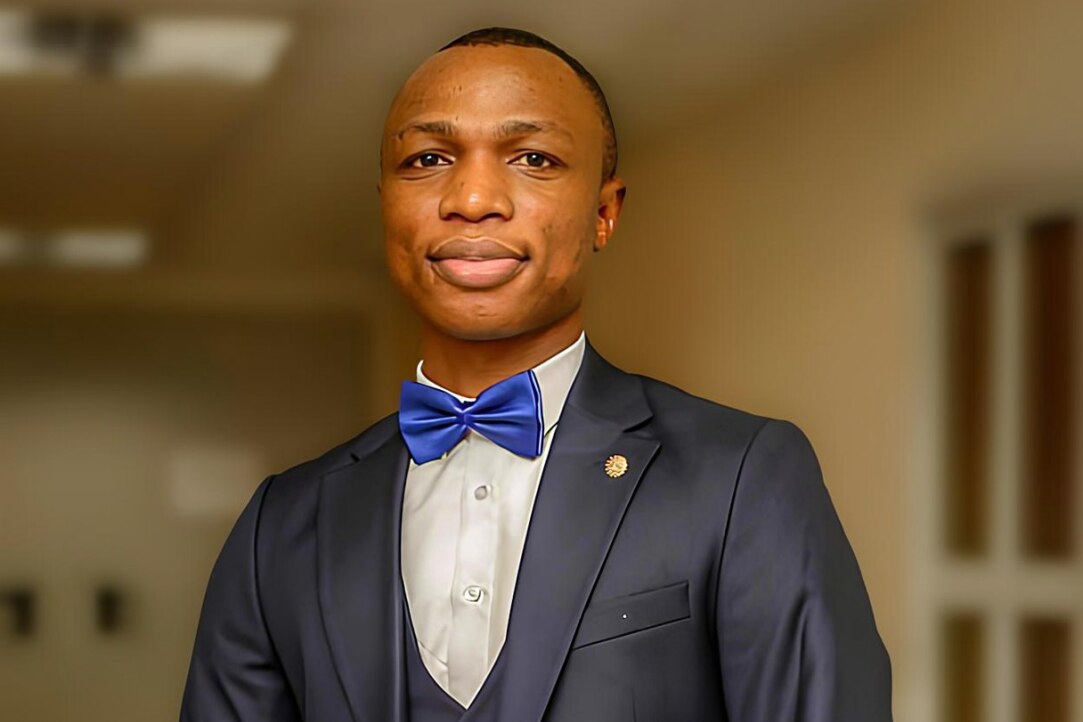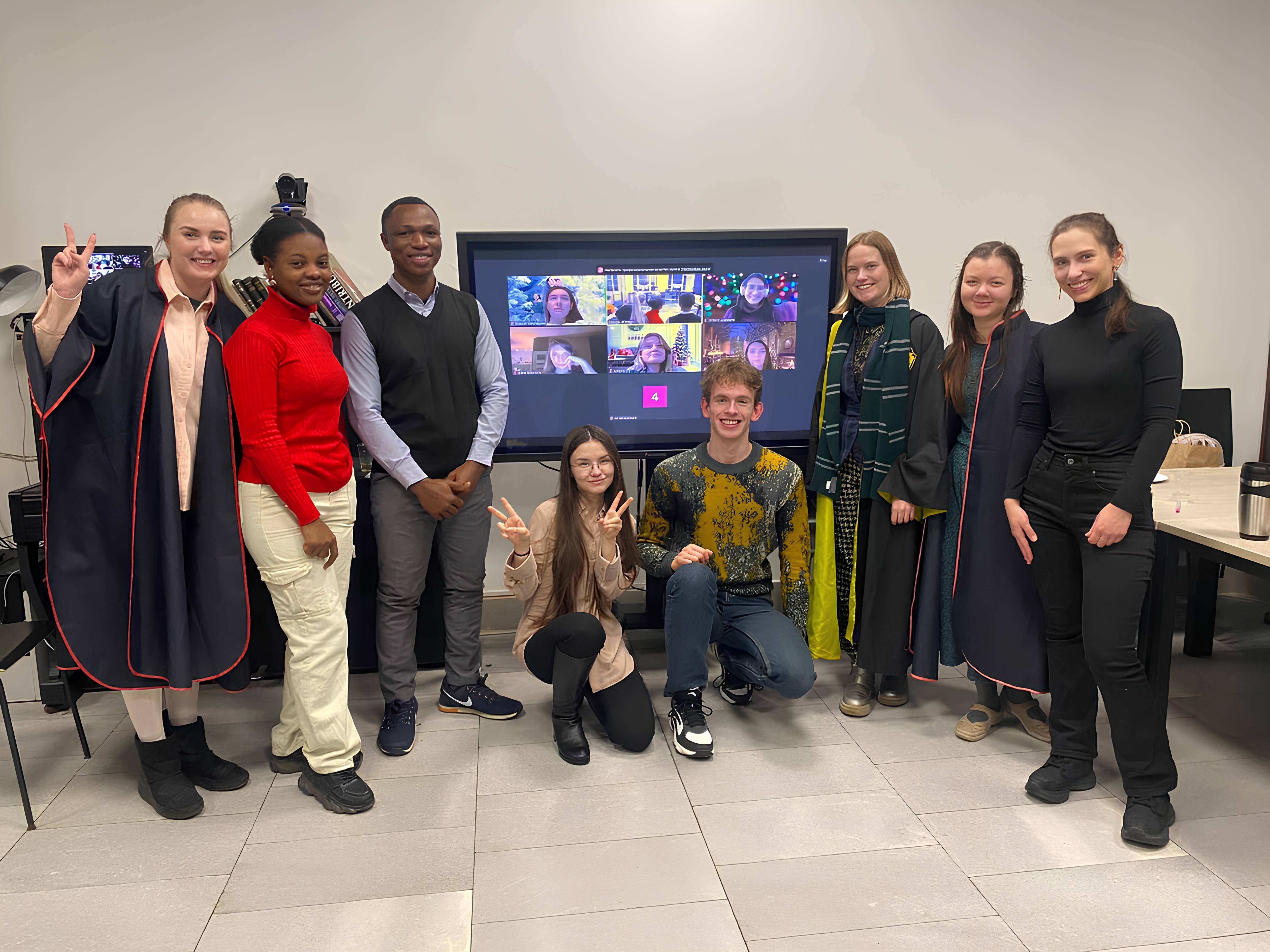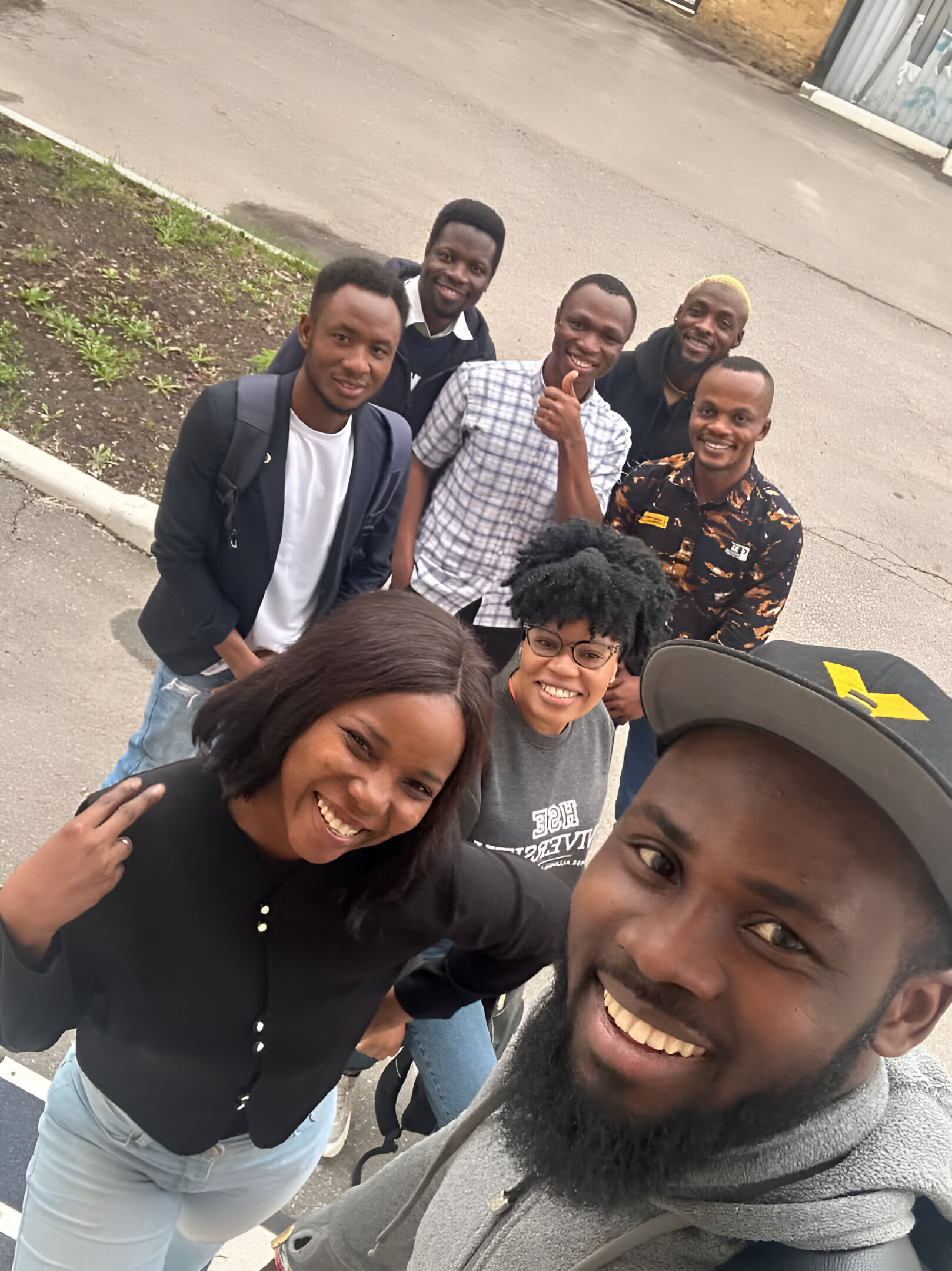‘Education is the Mother of all Disciplines’

Moses Oluoke Omopekunola, from Nigeria, is a second-year student of the Science of Learning and Assessment (SOLA) programme. Intent on pursuing a career in psychometrics, he has already joined the PhD programme in Education to deepen his knowledge of the theory and methodology of learning. In this interview with the HSE News Service, Moses explains how his master’s programme aligns with his future plans, recalls the challenges he has faced, and shares the most valuable lessons he has learned so far.
— What motivated you to come to Moscow for your studies?
— Russia is an advanced nation with top-notch educational standards—ideal for those who want a quality and structured academic programme. More importantly, the international Open Doors Olympiad gives winners the chance to choose from the leading universities in Russia and experience a multicultural education system.
— Why did you choose the Science of Learning and Assessment programme?
— I have my bachelor's and first master’s degrees in physics, which is based on the measurement of physical quantities using various instruments. I later realised that there are concepts in life that cannot be assessed with physics instruments. For example, how do I know how intelligent a student is in a particular discipline? I then understood why teachers administer tests, exams, and other assessments to students.
If a test is an instrument, it must be well designed, calibrated, meticulously administered, scored, analysed, and interpreted
I saw that I lack such skills as an educator. This is psychometrics, one area of study that SOLA offers. Its intersection of educational theories and psychology appealed to me. That was my motivation for applying for my current programme.
— In your opinion, how important is the field of education on a global scale?
— Education is the driver of development in any nation. As Nelson Mandela said, ‘The collapse of education is the collapse of a nation.’
Coming to education as a field of study, I will say it's the mother of all disciplines
Growing up, I thought other fields of study were more important because of the fame and the opportunity to earn more. But a child with an ambition of becoming an engineer or a medical practitioner can become a victim of a poor educational system, like poor curriculum design and implementation, poor quality of teachers, low quality of academic research, etc. I believe that education is not given the attention it is due.
— How was your overall experience of the master’s programme?
It was fulfilling. I acquired more than I anticipated and I enjoyed every part of it. My first year was filled with challenges as a pure science student with little foundation in education. I was not familiar with the psychological terms the professor was using. Also, practical class engagement was not part of my background, so I found it difficult to interact during class activities.
The initial period was very challenging, but as the weeks turned into months, I found my footing
— What moments do you still remember vividly from the programme?
— During the first psychometrics course in the first year, I got a final grade of 6, which was a big blow to me. I was determined not to allow this to deter me from pursuing a career in the field. When choosing courses for the second year, I was afraid to go for the advanced part of the course, but I persevered and gave it my best. My first and second test scores were not impressive. I knew that the only way to get through the course was to perform well in the exam, which carries the most significant weight in the final grade. I was anxious going into the exam. I have never written an exam like that before—I sat for about eight hours in one stretch, since the exam lasted 24 hours. In the end, I earned an excellent grade (9) in the course. That was one of my happiest days in SOLA.

— Which courses left the strongest impression on you?
— I particularly enjoyed my courses in statistics and psychometrics, as I have a strong interest in this area and I could relate all the lessons to a particular area of current research in the field.
The practice classes after lectures allowed me to work with data and receive corrections and feedback from professors immediately
Learning about behavioural genetics in education was very practical. We examined nature versus nurture, discussed genetic issues that affect learning, and learnt how to respond to students with these educational needs and advise educational boards and governmental agencies. My group worked on the genetics of dyslexia and its effect on learning. During the mini-conference where we presented our results, we addressed the roles of educational stakeholders and governmental agencies in handling children with dyslexia. In particular, we spoke about how teachers can recognise children with dyslexia and offer personalised assistance based on the profile of such students. Our results draw from genetic and environmental perspectives.
— Which professors or lecturers stood out during your studies?
— All the professors in SOLA are outstanding, but I want to highlight two of them. The first is Darya Gracheva, who was the academic supervisor of my programme. She's passionate about what she does, and she does it excellently. Her brilliance has inspired me. I have approached her several times outside classes to clarify some areas in her lectures, and she always listens and helps solve my problem.
All the professors here are attentive and approachable
The second person is my academic mentor and research supervisor, Elena Kardanova. I have learnt promptness, hard work, excellence, and dedication from her. I never planned to write two scientific papers during my master's programme, but she spurred me on. She sees more potential in me than I see in myself. She allowed me to participate in several research projects inside and outside the institute, refining my research skills. She also invited me to work as a teaching assistant. That also refined my teaching skills and prepared me for the classroom.
— What were the entrance exams for the PhD programme like?
— There are several stages to the exam. One is the portfolio stage, which assesses candidates’ cumulative research and academic experiences. So, my preparation began on day one of my master's programme.
All my activities were deliberate and aligned with the criteria that will position me well for PhD admission
I had one published paper and one under review when I went in for the second stage of the competition: the interview. That process was seamless but highly competitive. Knowing the criteria for evaluation and early preparation towards it positions any candidate well.
— What are your future professional goals?
— I decided to pursue a career in academia several years ago, and doctoral school is where an academic career begins. I intend to work at the intersection of academia and industry in leading testing companies at home and abroad. This will enable me to keep my students updated with current trends in the field and provide them with valuable industry experience. I also plan to collaborate with governmental agencies for national and international educational reforms.
— What sets the HSE apart from other universities?
HSE is a higher school not only for economics, but for everything. It is an excellent university
Its motto—‘We study not for school but for life!’—is reflected in HSE’s programmes. All programmes give extra benefits to students. I would like to highlight the inclusion of data analytics in every programme, which equips students with essential data analysis and programming skills. My friends from other universities always speak highly of HSE, and some of them have participated in HSE summer schools. Unsurprisingly, it is one of the leading universities in the country.
— Have you had opportunities to collaborate with international researchers or students during your studies?
— Yes, I have collaborated with several international students within and beyond HSE through class group projects and research projects. For the SberBank AI project hosted by our centre, I worked with a team that included students from a university in Germany. We had both PhD and master's students in the group. It was a nice collaboration.
At HSE, I have collaborated with people from diverse sociocultural groups and learnt to appreciate and value different contributions
— What do you do in your free time?
— I spend my free time with friends and colleagues. I visit them at their dormitories and sometimes go sightseeing. I have also participated in several voluntary social activities within the university, including the buddy programme, where experienced students help new arrivals adapt to life in Russia.
Involvement in university activities unites students from other programmes, faculties, and campuses outside Moscow
It's also a good place to make new contacts that can translate into research collaboration. I am eager to meet people and share research ideas at any gathering I attend.

— What advice would you give to those who want to study SOLA at HSE?
— First, understand the programme's curriculum and know its demands—especially the demand for your time.
The programme is hybrid by design, but more efficient offline, especially for courses that involve working with software. I also recommend working in a group whenever possible. International students should work with Russian students to better adapt to the Russian educational system.
Lastly, active participation in mentor and research seminars is crucial. Half of students' problems would be solved if they attended these seminars actively.
I wrote my term paper, master's thesis, and two papers based on the knowledge gained in the research seminar and my supervisor's contribution
I highly recommend SOLA to every educator, not necessarily for building a career, but for building relevant 21st-century research skills.
See also:
‘Employers Know That HSE Graduates are Well-Prepared, Analytical, and Adaptable’
Warda Tariq, from Pakistan, completed her Master’s in Data Science at HSE University–Moscow in 2024. She is now undertaking a PhD at the Faculty of Computer Science while working remotely as an AI/ML developer. Warda spoke to the HSE News Service about blending theory and practice, what an HSE education provides apart from academic knowledge, and her advice for making the most of university.
‘Start Working on Your Articles from the Very Beginning of Your PhD’
Andrés Castañón Rincón, from Spain, is a doctoral student at the HSE School of Philosophy and Cultural Studies in Moscow working on the history of Soviet Marxism philosophy. In his interview with the HSE News Service, he explains why studying Soviet Marxism is relevant today, talks about the advantages and challenges of his work in Moscow as an international researcher, and gives some advice to beginner PhD students.
‘Everyone Who Sees HSE University on My CV Says: “You Must Be So Smart!”’
On October 9–10, the first-ever HSE International Alumni Reunion brought together graduates from various cohorts and programmes—now working in Russia and abroad—along with representatives of HSE University and its industry partners. The event included a tour of the campus, a business game, and a cultural festival. The participants exchanged experiences, reflected on their career paths, and discussed labour market challenges.
‘I Wish Summer Were Quarterly’
Practicing and teaching yoga, chilling in Moscow parks, writing academic papers, travelling around Russia, and volunteering—these are only a few of the things HSE international students have tried over their summer break. Now, as they are getting back to studies, the students reflect on their summer experiences in academic work, professional development, travel, and leisure.
Russian and Chinese Scholars Share Experience of Transformation of Doctoral Education
The Russian and Chinese postgraduate education systems originally borrowed their institutional frameworks from the Soviet Union. However, in the 21st century, they have evolved along different paths. While key performance indicators for postgraduate programmes in Russia are declining, China is seeing a rapid increase in the number of postgraduate students. These contrasting trajectories and the reforms undertaken in each country in recent decades were the focus of a roundtable discussion held as part of the 25th Yasin (April) International Academic Conference.
‘My Academic Experience at HSE Has Been Truly Enriching’
Onoja Abah Monday, 28, from Lagos, Nigeria, is currently pursuing his master's degree in the Science of Learning and Assessment (SOLA) programme at the HSE Institute of Education. He spoke to the HSE News Service about why he chose HSE University, his fascination with Russian language and culture, and his future plans to contribute to the development of his home country.
‘People Here Want to Help You When You Are in Need’
David Kuku, from Makurdi (Benue State, Nigeria), is currently studying on the Master’s in Cognitive Sciences and Technologies: From Neuron to Cognition at HSE University in Moscow. In this latest instalment of a series on students’ experiences over the last year and their plans for the future, David told the HSE News Service about coming to the university on a scholarship, the busy life of an international student, and why the most interesting thing about Moscow is the people.
‘From the Day I Arrived, I Felt That Moscow Is the Place to Be’
Ikenna Mbata, from Owerri, Nigeria, is a student of the Master’s in Science, Technology and Innovation Management and Policy at ISSEK in Moscow. As part of a series of articles in which HSE students reflect over the past year and look to the future, Ikenna told the HSE News Service about the admissions process that led to him winning a full-tuition scholarship, how his courses are relevant to current events, and why learning Russian is not for the faint-hearted.
‘Be Prepared to Do Your Best Because Your Resilience Will Be Tested’
Maryann Asemota, from Nigeria, graduate of the Master’s in Science, Technology, and Innovation Management, now works as researcher at the HSE Institute for Statistical Studies and Economics of Knowledge (ISSEK). In an interview with the HSE News Service, she shared her experience of working at HSE University, her future plans, and gave some advice on pursuing a career in academia.
‘HSE University Is a Place Where Dreams Come True’
Gabriel Odigbo Iji, from Nigeria, is a student of the master's programme ‘Politics. Economics. Philosophy’ at HSE University in Moscow. In an interview with the HSE News Service, Gabriel speaks about his journey to Moscow last year, the admissions process, his expectations of studies and the student community, as well as the opportunities that HSE offers to international students.


